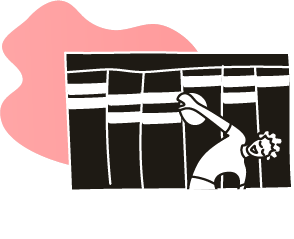Title of the resource
Title of the resource in english
Publisher
Core Knowledge UK
The Core Knowledge Foundation is a nonprofit organization from Charlottesville, Virginia, which was founded in 1986 by E. D. Hirsch, Jr. The foundation offers open access curricula to schools, teachers, parents.
https://www.coreknowledge.org/about-us/. Accessed September 30, 2020.
Original language
Target and Age Group
Primary school (7-8 year olds), year 3 in the UK education system, part of the national curriculum for history.
Link to resource
The link is to the whole ancient Greece Module, 5 lesson plans.
http://www.coreknowledge.org.uk/resources/Resource%20Pack-%20Year%203-%20Ancient%20Greece-%20Unit%201.pdf
Accessed September 30, 2020
Author of the Entry:
Ayelet Peer, Bar- Ilan University, ayelet.peer@biu.ac.il
Peer-reviewer of the Entry:
Lisa Maurice, Bar-Ilan University, lisa.maurice@biu.ac.il
Second Peer-reviewer of the Entry:
Daniel A. Nkemleke, University of Yaoundé 1, nkemlekedan@yahoo.com
Core Knowledge
Core Knowledge UK
The Core Knowledge Foundation is a nonprofit organization from Charlottesville, Virginia, which was founded in 1986 by E. D. Hirsch, Jr. The foundation offers open access curricula to schools, teachers, parents.
https://www.coreknowledge.org/about-us/
Accessed September 30, 2020.
Contents & Purpose
This is the first lesson of five. It offers an introduction to ancient Greece. The objective of his lesson is to introduce the ancient civilization to the young students and connect it with more familiar themes to the children, such as Olympic Games, Greek gods etc. The teachers are encouraged to incorporate videos from films such as Troy (2004) or 300 (2006).
The lesson includes a map of ancient Greece with key locations and brief explanations of them (Athens, Olympia, Sparta, Crete, Mt. Olympus, Troy, Macedonia).
There is an empty map for the students to complete with the teacher and a complete map with brief explanations.
For example, it is noted that Crete was the largest island of Greece and home to king Minos and the Minotaur. Since this lesson is aimed at young students, there is no in depth differentiations between Minoan culture and the mainland.
This plan also provides links to You Tube videos (Horrible Histories and the BBC).
Further comments
This first lesson aims to introduce ancient Greek civilization as well as geography in general to the students by also catering to their previous existing knowledge of several aspects of this culture (the games or Troy). Furthermore, this lesson explains to the students the term city-state, which will be further developed in the following lessons.
This lesson assumes that the students have already encountered the ancient culture probably via films or the Olympics.
The chronology used as the basis of this lesson (800 B.C.E TILL Alexander the Great) is vast, too vast perhaps, since Archaic and Classical Greece show various changes. It would have been advisable to show a time line of the different periods which constitute “ancient Greece”. Crete is mentioned yet it is irrelevant to the specified period of 800 B.C.E as well as the Trojan War. In order to express the antiquity of the Greek culture dates should have been given with a brief explanation of Minoan and Mycenaean cultures.
The lesson focuses on the Olympic Games on the polis and a bit on the Pantheon, yet it mentions no science or philosophy, no direct link to mythology art and architecture which could have contributed to the understanding of this unique culture.
The referred movies, 300 (2006), Troy (2004), Alexander (2004) contain graphic violence and sexual acts and therefore should be used with discretion for young students.


